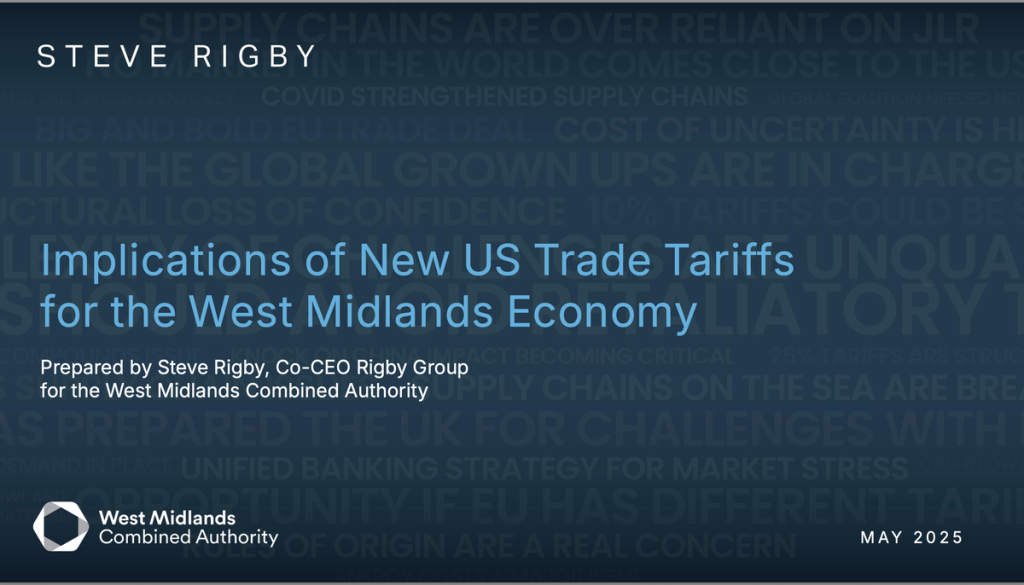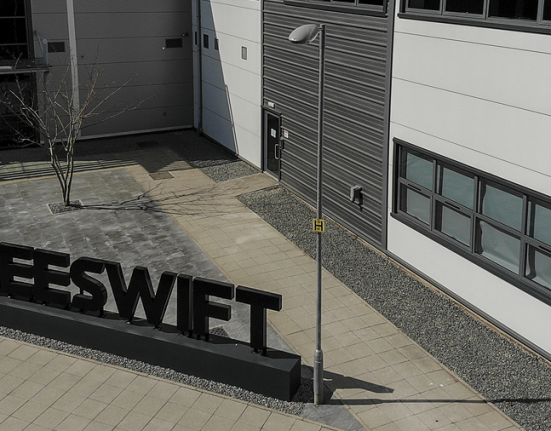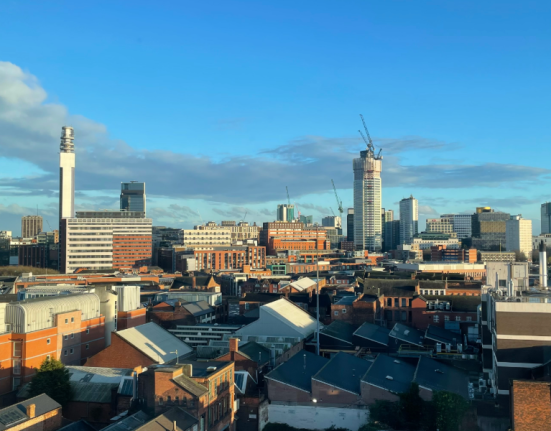When a region that powers your national economy sounds the alarm, you listen. Or at least, you should.
And as news breaks Stateside of a seemingly relieved President Donald Trump heralding (in block capitals on social media, of course) a trade deal with the UK, perhaps that’s exactly what has happened. Details will become clearer today after America wakes up.
Rigby report: Failure unthinkable
The West Midlands, home to some of the UK’s biggest automotive exporters, is facing a moment of hard truth. A new report, commissioned by Mayor Richard Parker and led by Rigby Group Co-CEO Steve Rigby, is as much a warning as it is a rallying cry: act now, or face the structural unravelling of one of Britain’s most vital industries.
Let’s start with the headline: “Failure to secure a deal within weeks, not months, presents a structural risk to the regional and national economy.”
That’s what Rigby says. And it’s not business hyperbole. It’s a calculated assessment backed by data from CBI Economics, Make UK and the Federation of Small Businesses.

West Midlands more exposed than any other UK region
With £8.5 billion in exports to the US – 61% from automotive alone – the West Midlands has more skin in the game than any other UK region.
The proposed 25% US tariffs on vehicles aren’t just a policy wrinkle. They’re a wrecking ball. The report finds that “10% long term tariffs can be absorbed,” but 25% risks “causing structural changes to businesses.”
That’s corporate speak for layoffs, closures, and the slow bleed of industrial strength.
Parker is playing it straight and strategic: “This report shows the strength of our region’s business voice and the value of working collaboratively. We’re ready to work with ministers to secure a deal that provides certainty for businesses in our region.”
Certainty. That’s the word. Not optimism. Not aspiration. Certainty.
An imperfect deal is better than no deal
There’s recognition, too, that perfection is the enemy of progress. The report is unequivocal: “A less than perfect deal after 45 days is preferable to an improved one after 180 days.”
Why? Because business doesn’t operate in slow motion. Cash flow, supply chains, investment decisions – they’re all made on deadlines, not ideals.
Rigby strikes a note of cautious optimism: “Although tariffs and geo-political shifts undeniably present immediate challenges, there is also opportunity which, if harnessed, could drive regional and national growth.”
That’s the window. But it’s closing fast.
This isn’t just a Midlands moment. It’s a test of whether Britain can protect and empower the parts of the country that still make things – real things. The question now: will Westminster move at the speed of the crisis, or the speed of politics?







